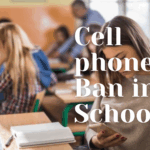Last week, the Loudoun County School Board made a decision that’s stirring conversations across education circles. The board voted to continue funding Diversity, Equity, Inclusion, and Accessibility (DEIA) programs, despite strong opposition from some members.
As an educator, I’ve experienced how the words “equity” and “inclusion” spark debate. Some see DEIA as a necessary step toward helping all students thrive, while others worry about politicization in schools.
But before we let politics overshadow the real issue, let’s take a step back and ask: What does this decision actually mean for students?
What did Loudoun County decide?
The Loudoun County Public Schools (LCPS) board approved funding for DEIA initiatives, which include:
- Training for teachers and staff on inclusive practices
- Programs aimed at closing achievement gaps among students
- Resources to ensure all students, regardless of background, feel represented and supported in school
Opponents argue that the funding could conflict with federal policy changes regarding DEIA programs, but supporters say these initiatives are critical for student success.
Why Equity and Inclusion Matter in Schools
At its core, education is about opportunity. Every student who walks into a classroom brings a different story, a different struggle, and a different set of needs. Some students have access to private tutors, technology at home, and a quiet space to study. Others face food insecurity, language barriers, or systemic disadvantages that impact their learning.
The goal of DEIA isn’t to create division—it’s to bridge those gaps. A student who feels safe, included, and supported is more likely to succeed academically. Studies have shown that schools with strong equity programs see better student engagement, lower dropout rates, and stronger long-term outcomes.
I remember one of my former students, Daniel. He had transferred from another district and struggled because English wasn’t his first language. Thanks to a literacy support program funded by equity initiatives, he was able to catch up—and by the end of the year, he was excelling.
DEIA efforts like these aren’t about favoring one group over another—they’re about ensuring every student gets the tools they need to succeed.
The Debate: Where Do We Draw the Line?
The controversy over DEIA programs isn’t new. Some argue that these initiatives can be too broad or ideological, potentially shifting the focus away from academics. Others question whether schools should be responsible for addressing societal inequities beyond education.
While I understand these concerns, I believe the real question should be: Are these programs improving student outcomes? If we take the politics out of it, what we’re left with is a conversation about making sure every child has a fair shot at success.
What’s Next for Schools?
Loudoun County’s decision will likely serve as a test case for other districts grappling with similar choices. Should schools prioritize funding for DEIA programs? Should policies adapt to political changes, or should they focus solely on student needs?
As educators, parents, and community members, our role is to stay informed and engaged. We need to ask: Are our schools providing all students with the support they need? If the answer is no, then what steps can we take—DEIA or otherwise—to make sure they do?
Keeping the Focus on Students
At the end of the day, education isn’t about political talking points—it’s about students and their success. Whether you support or oppose DEIA funding, one thing is clear: every student deserves a safe, fair, and enriching learning environment.
Loudoun County’s decision is just one chapter in an ongoing conversation. But if we keep the focus where it belongs—on students—then we’re moving in the right direction.
What do you think? Should DEIA funding remain a priority in schools? Let’s discuss in the comments.
(For privacy purposes names have been changed)













